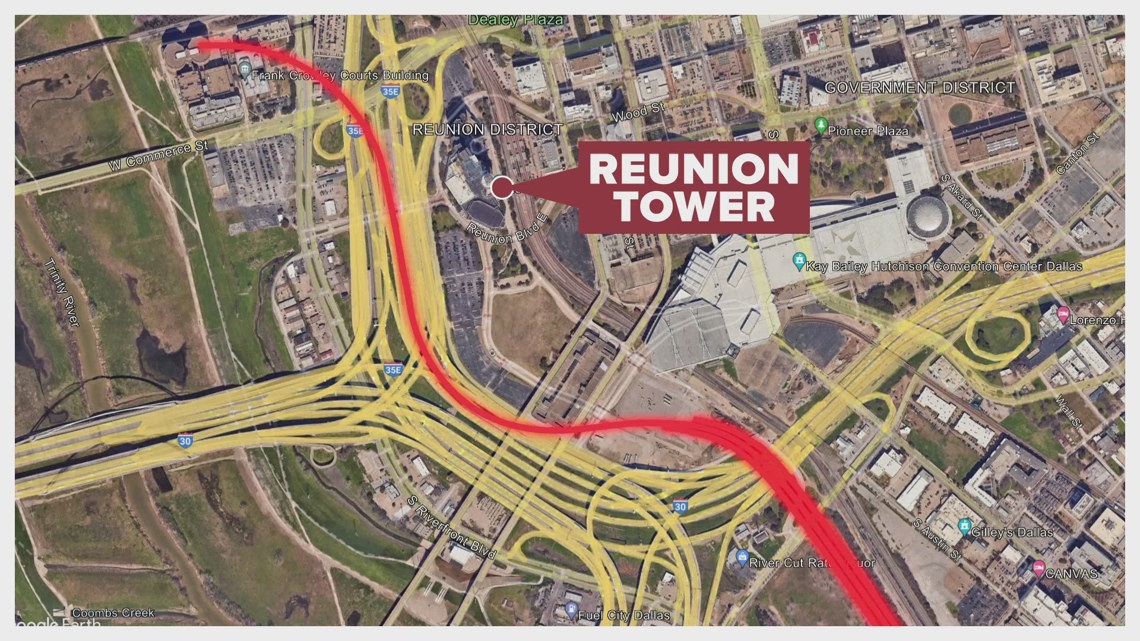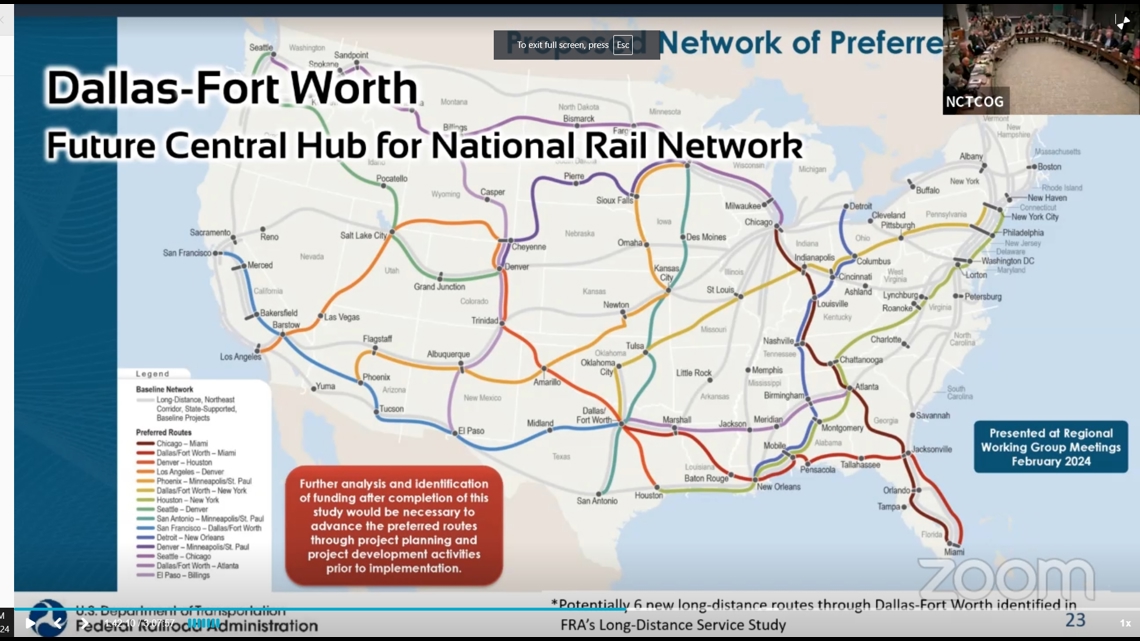The Regional Transportation Council, which oversees North Texas transportation policies and planning, discussed a revised Dallas-Fort Worth route Thursday.
DALLAS — The 45-member Regional Transportation Council, which oversees North Texas transportation policies and planning, met Thursday to consider a revised route for high-speed rail between Dallas and Fort Worth, one that would bypass downtown Dallas. So where do things stand now with plans for high-speed rail in North Texas?
What’s new on the proposed high-speed rail line connecting Dallas and Fort Worth?
The proposed route between Dallas and Fort Worth runs 31 miles, but the alternate route proposed Thursday dealt with the most contentious part — the mile or so near downtown Dallas. The alternate route proposed and discussed during meetings Thursday runs just west of downtown Dallas between South Riverfront Boulevard and the Trinity River before crossing Houston Street and I-35E to reach a station in The Cedars. Previous routes proposed offered more direct access to downtown.


The train would have stops at an underground station in Fort Worth, and a stop in Arlington, also underground, and in Dallas, according to the proposal.
Dallas City Council members in June opposed a previous route proposed that cut through downtown until an economic development study is complete, which is expected next year. At that time, a prominent developer raised concerns that the route could impact businesses, including Reunion Tower, and warned the route’s proximity to the landmark could cause them to “sacrifice” hotel rooms and the tower’s iconic ball.
Engineers hope the adjustment to the route to bypass downtown Dallas would alleviate concerns from some stakeholders that the elevated tracks would interfere with planned developments in the area, including renovations to the convention center downtown.
“It’s critical to get a path forward,” said Michael Morris, the director of transportation for the North Central Texas Council of Governments.
Morris during the meeting framed the proposed high-speed rail extension to Fort Worth as a critical component for future high-speed rail access.
The project still needs approvals from entities, including the Dallas City Council, Amtrak, the Federal Transit Administration, the Federal Railroad Administration and the Texas Department of Transportation.
How the Fort Worth-Dallas line could connect to state and national lines
A line from Houston to Dallas, led by Amtrak, has received federal clearance. North Central Texas Council of Governments officials presented a Federal Railroad Administration map during the meeting this week that showed how North Texas could connect to a potential national rail network.
Part of a long-distance service study discussed in February, the map shows multiple potential routes from North Texas.


History of high-speed rail planning involving North Texas
Morris said planning for a potential high-speed rail line in North Texas goes back to about 2016, but a proposed Dallas to Houston high-speed rail line plan was advanced by Texas Central beginning in 2014.
The long-discussed Dallas-Houston high-speed rail line envisions a 240-mile line that would take commuters between Dallas and Houston in 90 minutes.
Texas Central is the company undertaking the development, design, construction, finance and operation of the Dallas-Houston high-speed rail line.
As part of discussions between the Regional Transportation Council and Texas Central on the Dallas-Houston high-speed rail project, the Regional Transportation Council in 2016 supported policies including a three-station concept – including Dallas, Arlington and Fort Worth.
The Texas Department of Transportation began working with the Federal Railroad Administration on a plan for a larger high-speed rail system for the state in 2017.
That vision included partially connecting what’s known as the “Texas Triangle”: North Texas, Houston and San Antonio, all the way to the Laredo area, via high-speed rail.
After Texas Central completed its environmental document through the federal government, the North Central Texas Council of Governments initiated a Dallas-to-Fort Worth high-speed transportation connections study in 2020.